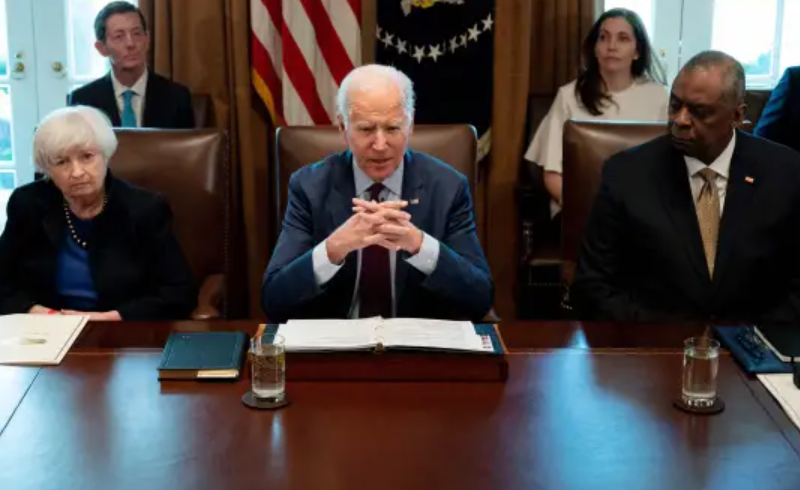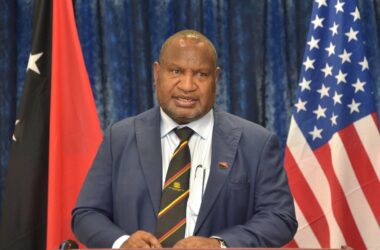The Biden administration is set to unveil a plan aimed at tightening oversight on banks and financial services entities that play a role in enabling Russia to bypass stringent sanctions on accessing military technology and equipment. The move comes in response to the persistent efforts of a network of traders and smugglers, supported by shadowy financial firms, aiding Russia in acquiring prohibited supplies essential for its military endeavors, especially in the ongoing conflict with Ukraine.
Despite the imposition of stringent sanctions by the United States and Europe over the past two years, a clandestine network of traders, collaborating with dubious financial entities, continues to facilitate Russia’s procurement of banned materials. These supplies are crucial for replenishing its military arsenal, and the illicit trade undermines the effectiveness of sanctions.
President Biden is scheduled to sign an executive order on Friday, granting the Treasury Department expanded authority to impose sanctions on banks and financial institutions participating in these covert transactions. The executive order aims to disrupt Russia’s military industrial complex by targeting entities involved in facilitating prohibited transactions and ensuring that those supporting smuggling activities face consequences.
While many Western financial institutions have already severed ties with Russia, the Biden administration intends to leverage the threat of new sanctions to further encourage American and European financial firms to apply pressure on banks in other regions. The objective is to dissuade these banks from engaging in transactions that aid Russia’s procurement of banned military supplies.
To enhance the effectiveness of sanctions, American and European officials have been collaborating with banks to develop a warning system. This system will help identify and report potential sanctions violations. As of September, U.S. banks had already alerted the government to 400 suspicious transactions, highlighting the ongoing efforts to monitor and combat illicit financial activities.
The Biden administration has consistently relied on the private sector to play a significant role in enforcing its sanctions program. Recent initiatives, such as requiring maritime insurers and financial services firms to rigorously enforce price caps on Russian oil exports, showcase the administration’s commitment to bolstering private sector collaboration in sanctions enforcement.
As geopolitical tensions persist, the U.S. government’s efforts to strengthen measures against financial entities aiding Russia’s military procurement underscore the ongoing challenges in curbing illicit activities. The executive order signals a determination to disrupt covert networks and underscores the reliance on international collaboration and private sector involvement to enhance the efficacy of sanctions.








